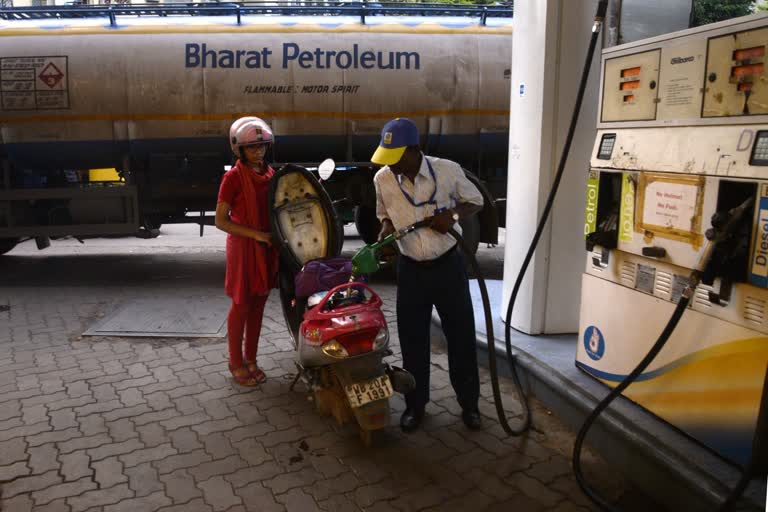New Delhi: The oil sector seems to be the latest addition to the list of sectors facing stress due to the ongoing economic slowdown.
For the first time in many months, both oil demand and imports have witnessed a sharp fall indicating that poor health of the economy has now begun impacting a sector where the country relies a lot on imports.
As per latest the Oil Ministry data, petroleum products demand in India has slipped to its two-year low level in September at 105.7 million tones.
The fall is largely on account of a consistent fall witnessed in the consumption of auto fuels - petrol and diesel. Both fuels have reached their lowest consumption level in
September with consumption of petrol and diesel falling to 2.3 and 5.8 million tonnes level respectively in September.
The consumption of the two products have fallen in each of the months in the current financial year indicating the slowdown is taking its toll in the oil sector as well.
Read more: Don't think there's any hope of economy reaching $5 trillion by 2024: Manmohan Singh
What is worse is that consumption fall has also resulted in slowing down of oil imports that have fallen by 0.5 per cent during April-August 2019 from a level of 94.9 million tonnes (MT) in FY19 to 94.4 MT in the five-month period of the current fiscal.
While a slowdown in oil imports should be welcomed in a country that spends its foreign exchange to but crude oil, it is reflective of poor demand scenario that has slowed oil imports by refineries.
The refineries are using their inventories for meeting domestic supplies of petroleum products rather than buying additional quantities of crude oil from overseas even though buying at this juncture would be beneficial with international crude prices at a low of $58.9 a barrel.
"It is surprising that oil imports have fallen when global prices are stable and low. This means that consumption has declined and demand is not picking up.
The sector has begun to feel the pain of an economy that several of the consuming industries such as automobiles are already facing," said an executive of the Indian Oil Corporation asking not to be named.
Though it is difficult to derive a conclusive relationship between oil imports/sales and economic activity, analysts are unanimous that current contraction is the result of a slowdown.
Otherwise, sales of petroleum products should not have fallen when per capita consumption has been growing.
As per the Petroleum Planning and Analysis Cell (PPAC) of the Oil Ministry, except for bitumen and lubricants, consumption of all other petroleum products such as petrol, diesel, ATF, kerosene, LPG, naptha, and petroleum coke have fallen in September on a month-on-month basis. Some of the products have maintained a fall throughout the first half of the current fiscal.
Total LPG consumption fell to 2.2 MT in September from a level of 2.4 in August, even though government Ujjwala scheme is fast expanding the reach of cooking gas to the remotest corner of the country.
Even kerosene consumption registered de-growth, falling to 1.76 lakh tonnes in September from over 2.3 lakh tonnes in August.
All is not good on oil export front as well with exports of petroleum products decreasing by 5.2 per cent during August 2019 as compared to the same period of the previous year.
The decrease in petroleum products exports during August 2019 was due to decrease in all exports.
Indigenous crude oil and condensate production during August 2019 were lower by 5.4 per cent than that of August 2018. OIL, ONGC and PSC registered lower production of 4.2 per cent, 3.7 per cent and 9.5 per cent, respectively, during August 2019 as compared to August 2018.
On a cumulative basis, indigenous crude oil and condensate production of the country was lower by 6.1 per cent during April-August 2019 as compared to the corresponding period of the previous year.
The slowdown is coming at a time when the international environment is very favourable, in terms of pricing of crude oil.
The price of Brent crude averaged $59 per barrel during October 2019 and around $60 a barrel in September 2019 against much higher levels last year.
The Indian basket crude price averaged $59.35/barrel during August 2019 as against $63.63/barrel during July 2019.



